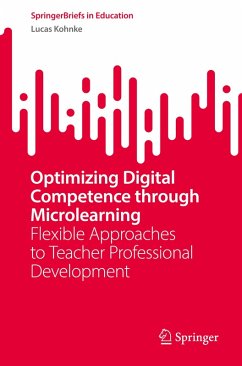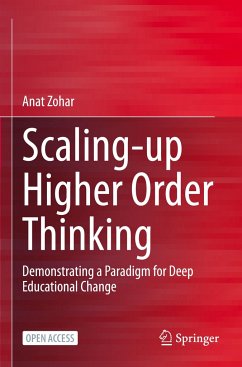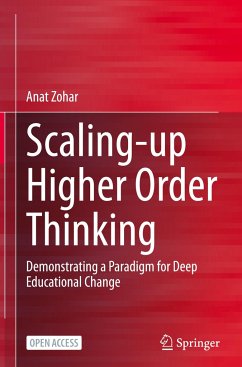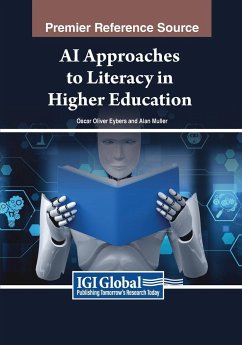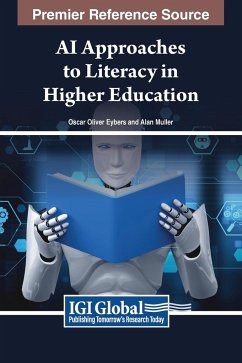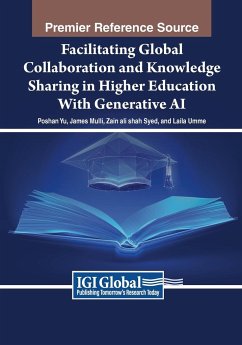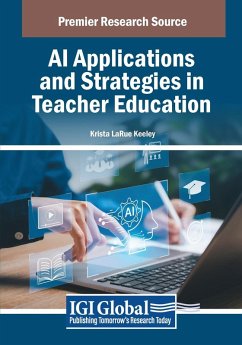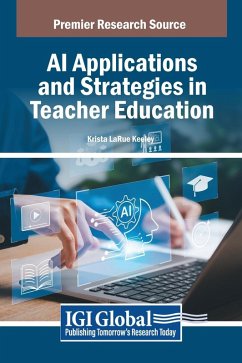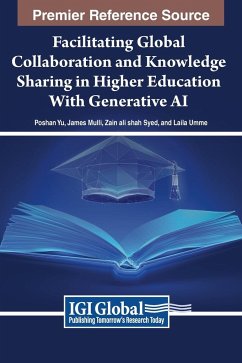
Inevitability of AI Technology in Education
Futurism Perspectives for Education for the Next Two Decades

PAYBACK Punkte
49 °P sammeln!
This book layouts historic and future perspectives at the introduction of technology into education systems: On the one hand, the book attempts to explain why despite numerous attempts, technology has struggled to integrate successfully into the education system for over a century; on the other hand, it explores whether this trend will persist in the foreseeable future, questioning if emerging technologies, like virtual reality or Gen-AI will ever be embraced by education systems worldwide, and introducing a hypothesis that these technologies will become inevitable so that education systems wi...
This book layouts historic and future perspectives at the introduction of technology into education systems: On the one hand, the book attempts to explain why despite numerous attempts, technology has struggled to integrate successfully into the education system for over a century; on the other hand, it explores whether this trend will persist in the foreseeable future, questioning if emerging technologies, like virtual reality or Gen-AI will ever be embraced by education systems worldwide, and introducing a hypothesis that these technologies will become inevitable so that education systems will have a little choice in adopting them. The underlying perspective is that education systems need to prepare for this new future and better start doing so now.
The book encompasses three key areas: education, technology, and future studies, with a focus on how technology will shape the future of education. It begins by examining past failures of integrating technology into education, analyzing the reasons behind these setbacks. It progresses to assess the potential integration of future technologies (10-20 years from now), exploring a feasible scenario and the force implications on learning, teachers, and the system.
Examining recent attempts to implement technology in education reveals numerous reasons for failure. A significant contributing factor appears to be inherent conflicts within the education system's fundamental structure. These conflicts, involving goals, curricula, organizational structure, pedagogy, and student management, prevent the system from embracing reforms or new technologies.
Envisioning a future where technology will deeply 'know' the students, 'sense' their environment, 'understand' the context and the situation, 'explain' and 'advise' them on the best suitable behavior or activity, the book anticipates applications in education ranging from ensuring personal safety and health to enhancing knowledge acquisition and decision-making. As the book explores the potential inevitability of technology in education, it recognizes the transformative impact on teachers and students and outlines possible desire scenario to aid in preparation, such as, personalized education to better suit student's capabilities, needs, and desires; how to motivate students to learn in an environment where all tasks can be done by machines; ethical issues; the new role of the school, the educator, and the system, etc. This book is especially suitable for teachers, educators, public officials, and anyone interested in the future of education.
The book encompasses three key areas: education, technology, and future studies, with a focus on how technology will shape the future of education. It begins by examining past failures of integrating technology into education, analyzing the reasons behind these setbacks. It progresses to assess the potential integration of future technologies (10-20 years from now), exploring a feasible scenario and the force implications on learning, teachers, and the system.
Examining recent attempts to implement technology in education reveals numerous reasons for failure. A significant contributing factor appears to be inherent conflicts within the education system's fundamental structure. These conflicts, involving goals, curricula, organizational structure, pedagogy, and student management, prevent the system from embracing reforms or new technologies.
Envisioning a future where technology will deeply 'know' the students, 'sense' their environment, 'understand' the context and the situation, 'explain' and 'advise' them on the best suitable behavior or activity, the book anticipates applications in education ranging from ensuring personal safety and health to enhancing knowledge acquisition and decision-making. As the book explores the potential inevitability of technology in education, it recognizes the transformative impact on teachers and students and outlines possible desire scenario to aid in preparation, such as, personalized education to better suit student's capabilities, needs, and desires; how to motivate students to learn in an environment where all tasks can be done by machines; ethical issues; the new role of the school, the educator, and the system, etc. This book is especially suitable for teachers, educators, public officials, and anyone interested in the future of education.



